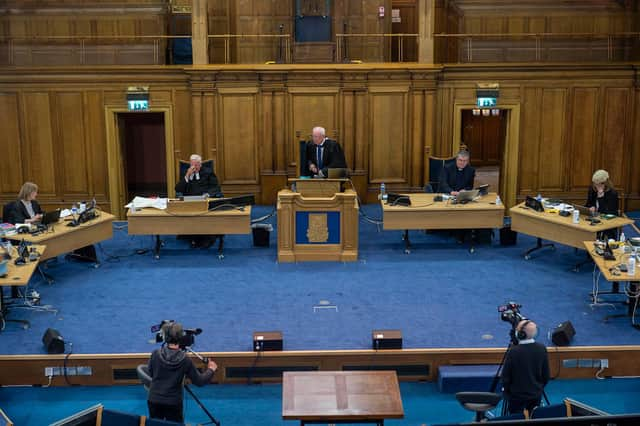Scotland's churches can no longer rely on status for their voice to be heard – Ian Swanson


Let us know what you think and join the conversation at the bottom of this article.
Perhaps the churches have not been as outspoken recently or maybe it’s because churches no longer have the place in society they once had.
But church interest in political issues has not gone away. And that is symbolised in an unusual way this week as the Church of Scotland General Assembly meets – mainly online – chaired by this year’s Moderator Lord (Jim) Wallace, former leader of the Scottish Liberal Democrats, who has served at both Holyrood and Westminster and in both Scottish and UK governments.
Advertisement
Hide AdAdvertisement
Hide AdLord Wallace – who has moved temporarily to the non-affiliated bench in the House of Lords – is only the second elder in modern times to to serve as Moderator.
Same-sex marriage is on the Assembly’s agenda for the umpteenth time with a debate on whether Church of Scotland ministers should be allowed to conduct such ceremonies.
But other matters due to be discussed include disinvestment from the oil and gas sector, international aid, the treatment of asylum seekers and the response to the climate crisis.
Earlier this year, a group of church leaders from various denominations took the Scottish government to court to challenge the closure of churches under the Covid-19 lockdown. But senior Kirk officials went out of their way to distance the Church of Scotland from the court challenge, making clear the individuals involved spoke for themselves.
“We do not think legal action is the right course to take when the country is under threat from Covid-19 and we fully accept that the latest pandemic restrictions mean that we have to close churches again for the time being,” they said. “The vast majority of our members understand and support these temporary restrictions.”
The Free Church of Scotland also backed the restrictions, saying the church had “a responsibility to support the government in its efforts” during a public health crisis.
Such comments were a welcome statement of church solidarity with the rest of society and a rejection of attempts to seek special treatment.
Too often the churches’ main concern when it comes to public issues is seen as being sex or self-interest.
Advertisement
Hide AdAdvertisement
Hide AdPrince William's attendance at the Assembly representing the Queen and his address talking of his family's love of Scotland have been interpreted by some as the launch of a royal charm offensive in support of the Union.
The Church of Scotland long supported greater “home rule” for Scotland, but has studiously avoided taking sides on independence, while encouraging genuine debate.
But tomorrow the Assembly will debate a wide range of social issues including calls for the UK government to help make Covid vaccines available to poorer countries, to drop its plans for increased deportations of asylum seekers and to reverse its cuts to overseas aid, as well as a call on local churches to hold public meetings to discuss a “just and green” future after the pandemic.
Churches no longer expect to be listened to because of any status they might claim. They realise any influence they can exert relies not on their place in society but on the strength of their argument.
A message from the Editor:
Thank you for reading this article. We're more reliant on your support than ever as the shift in consumer habits brought about by coronavirus impacts our advertisers.
If you haven't already, please consider supporting our trusted, fact-checked journalism by taking out a digital subscription.
Comments
Want to join the conversation? Please or to comment on this article.
